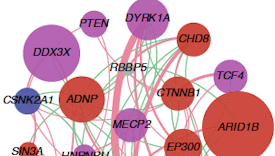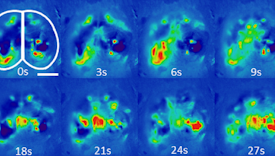
Joseph Dougherty is a professor at Washington University in St. Louis. He has built a team with a unique technical expertise, applying high-throughput molecular and behavioral analysis to identify cellular and molecular mechanisms of neurological disorders.
Dougherty was a Howard Hughes Medical Institute Predoctoral fellow, a neuroscience student with Daniel Geschwind at the University of California, Los Angeles and a postdoctoral associate in the laboratory of Nathaniel Heintz. During his Ph.D. and postdoctoral training, Dougherty gained extensive experience in high-throughput methodologies for transcript profiling and in vitro and in vivo analyses. This included developing and applying analytical methods for high-throughput in vivo studies of genetically defined cell types in mice, such as the generation and characterization of many TRAP (translating ribosome affinity purification) mouse lines, extensive experiments profiling different cell types, optimization of protocols for working with small amounts of RNA, and the development of analytical pipelines.
Using this expertise, Dougherty’s laboratory couples human molecular genetic analysis and mouse genetics and genomics — including the use of TRAP-sequencing (TRAP-seq), cross-linking immunoprecipitation-sequencing (CLIP-seq) and ribosome footprint profiling — to understand neurobiological mechanisms underlying neurodevelopmental disorders. His group is particularly interested in understanding the consequences of disruptions in transcriptional and translational regulators discovered by human genetic studies in developmental disorders.



